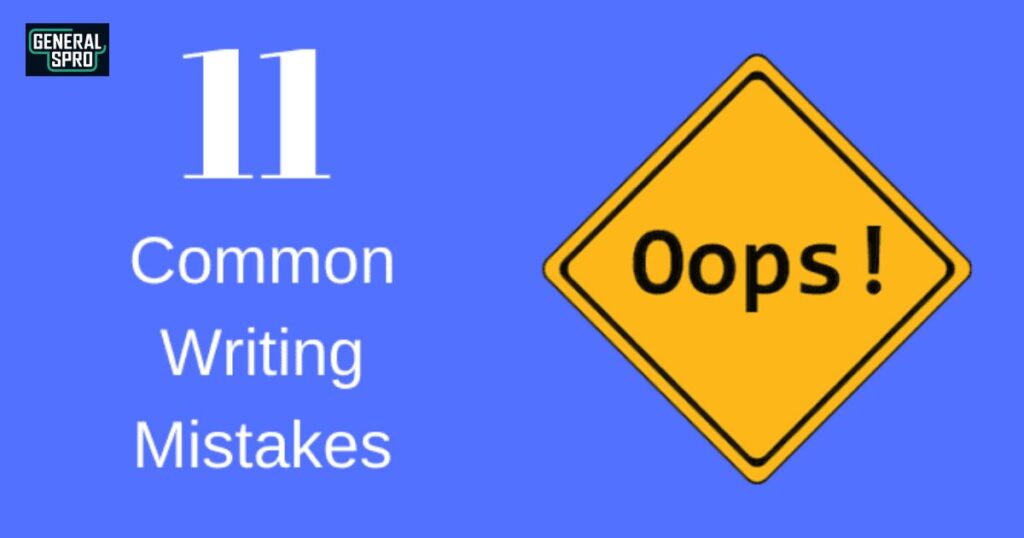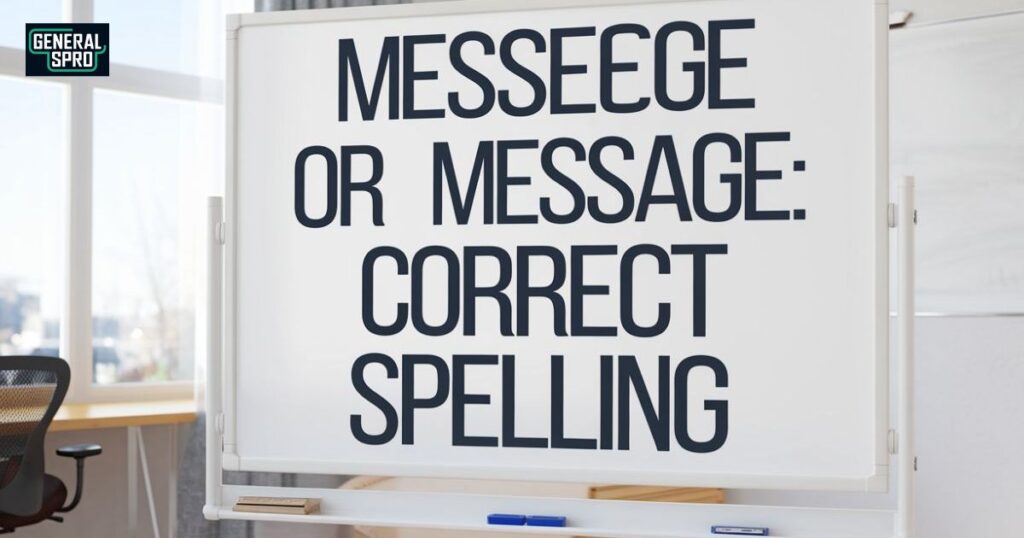Clear communication forms the bedrock of professional success, and proper spelling plays a crucial role in this endeavor. One commonly confused word that frequently appears in digital communication is “message.”
This comprehensive guide will help you master the correct spelling and usage of this essential word.
What is the Correct Spelling: “Message” or “Messege”?
The correct spelling is “message” – there’s no ambiguity about this in standard English. This word traces its origins through Middle English and Old French, ultimately derived from the Latin word “missus,” meaning “sent.”
Understanding this etymology helps explain why we use “age” rather than “ege” in the spelling.
A message serves as a means of communication, whether written, spoken, or conveyed through other methods. In modern usage, it can refer to everything from text messages and emails to broader concepts like thematic messages in literature or art.
Understanding Common Spelling Mistakes in Digital Communication
Digital communication has revolutionized how we interact, but it’s also introduced new challenges in maintaining proper spelling standards.
The misspelling “messege” has become increasingly prevalent, particularly in informal digital conversations and social media posts.
The Impact of Misspelled Words on Professionalism

Professional reputation often hinges on attention to detail, and spelling errors can significantly impact how others perceive your competence.
Research indicates that 75% of employers consider written communication skills crucial when evaluating job candidates.
Consider these examples:
Incorrect Example: Misspelled Message
- “I’ll send you a messege about the project details.”
- “Did you receive my messege from yesterday?”
- “Please check your messege inbox.”
Correct Example: Proper Spelling of “Message”
- “I’ll send you a message about the project details.”
- “Did you receive my message from yesterday?”
- “Please check your message inbox.”
Why Does “Messege” Keep Appearing?
Several factors contribute to this persistent misspelling:
1. Phonetic Confusion
The English language often challenges writers with its non-phonetic spelling patterns. The sound of “message” might lead one to expect “messege,” similar to words like “pledge” or “edge.” However, the “-age” suffix is consistent across many English words:
Common words ending in “-age”:
- Package
- Storage
- Usage
- Voltage
- Courage
2. Autocorrect Errors
Modern technology can sometimes perpetuate spelling mistakes. If a device’s autocorrect feature learns an incorrect spelling, it might continue suggesting the wrong version. This highlights the importance of manually checking important communications.
3. Typing Errors
The rapid pace of digital communication often leads to typing errors. When typing quickly, muscle memory and finger positioning can result in consistent misspellings, particularly on mobile devices.
Preventing Spelling Mistakes: Simple Tips and Tools
Implementing a systematic proofreading process can significantly reduce spelling errors. Consider these strategies:
- Read your text backward to focus on individual words
- Take a break before final proofreading
- Use text-to-speech tools to hear your writing
2. Use Autocorrect and Spell Check
Modern technology offers numerous tools to support correct spelling:
- Built-in spell checkers in word processors
- Browser-based grammar checking extensions
- Professional writing assistance software
- Mobile keyboard apps with advanced spell-checking features
3. Learn Commonly Confused Words
Creating a personal reference list of frequently misspelled words can help prevent future errors. For “message,” remember this memory aid: “The message came of age” – highlighting the correct “-age” ending.
Common Misspellings and Their Impact on Professional Writing

Poor spelling can have significant consequences in professional settings:
- Reduced Credibility: Studies show that spelling errors can reduce a website’s credibility by up to 59%.
- Lost Business Opportunities: Professional communications with spelling errors are 40% less likely to receive a response.
- Career Impact: 76% of executives report that spelling errors in resumes influence their hiring decisions.
Understanding the Evolution of Digital Messaging
The concept of “message” has evolved dramatically in the digital age. From simple text messages to sophisticated messaging platforms, our understanding of what constitutes a message continues to expand.
Modern communication relies heavily on instant messaging, making proper spelling and clarity more important than ever.
Message Etymology and Historical Context
The word “message” has rich historical roots. Derived from the Latin “missus,” it traveled through Old French “message” before entering Middle English. Understanding this etymology helps explain why we maintain the “-age” spelling convention in modern English.
Common Contexts for Using “Message”
In contemporary communication, “message” appears in various contexts. Whether in business emails, social media posts, or formal documents, the word’s versatility makes it essential for effective communication. Professional settings demand particular attention to its correct usage and spelling.
The Psychology Behind Spelling Errors
Research in cognitive psychology reveals interesting patterns in common spelling mistakes. The brain’s tendency to autocorrect and fill in gaps sometimes leads to persistent errors like “messege.” Understanding these psychological factors can help in developing better spelling habits.
Impact of Social Media on Spelling Standards
Social media platforms have significantly influenced how we communicate and spell words. The rapid pace of online communication often leads to compromised spelling standards, with “messege” being a prime example of how incorrect spellings can spread quickly.
Cultural Variations in Message Communication
Different cultures approach written communication differently, but correct spelling remains universally important. While some languages may be more phonetic, English requires careful attention to traditional spelling patterns, including words like “message.”
Professional Implications of Proper Spelling
In the business world, proper spelling serves as a marker of attention to detail and professionalism. Studies show that spelling errors in professional communications can significantly impact career advancement and business relationships.
Digital Tools for Spelling Improvement
Modern technology offers numerous solutions for maintaining spelling accuracy. From sophisticated spell-checkers to AI-powered writing assistants, these tools help prevent common errors like “messege” while improving overall writing quality.
Message Format in Different Communication Channels
Different communication channels require different approaches to message formatting. Whether writing emails, instant messages, or formal letters, understanding proper spelling and format conventions enhances communication effectiveness.
The Role of Education in Spelling Mastery
Educational approaches to teaching spelling have evolved significantly. Modern methods emphasize pattern recognition and understanding word origins, helping students master challenging words like “message” more effectively.
Common Message-Related Terminology
Understanding related terminology enhances proper usage of “message.” Terms like “messaging,” “messenger,” and “message board” all follow similar spelling patterns, reinforcing the correct form.
International Business Communication Standards
Global business communication demands high standards of English writing. Proper spelling of common words like “message” becomes crucial in maintaining professional relationships across international borders.
Future Trends in Digital Messaging

As communication technology evolves, new challenges and standards in message writing emerge. Understanding proper spelling becomes increasingly important as automated systems and AI continue to shape how we communicate.
Legal Aspects of Written Communication
In legal contexts, precise spelling and communication are paramount. Proper documentation, including correct spelling of words like “message,” can have significant legal implications in business and personal matters.
Building a Professional Writing Style
Developing a professional writing style includes mastering commonly used words like “message.” This skill contributes to creating a polished, competent professional image in all written communications.
FAQ’s
Why do people often misspell “message” as “messege”?
The confusion often stems from phonetic pronunciation patterns and similarity to words ending in “-edge.” However, “message” follows the standard “-age” suffix pattern in English.
Is there any context where “messege” is correct?
No, “messege” is never the correct spelling in English. The proper spelling is always “message,” regardless of context or usage.
Does American English spell “message” differently from British English?
No, “message” is spelled the same way in all English-speaking countries. This spelling remains consistent across all English variants.
How can I remember the correct spelling of “message”?
Remember that “message” follows the same pattern as other “-age” words like “package” and “storage.” Think of the phrase: “The message came of age.”
Does text messaging affect the proper spelling of “message”?
While text messaging often encourages abbreviated forms, the correct spelling “message” should still be used in professional and formal communication.
Are there any exceptions to using “message” in compound words?
No, all compound forms (like “messaging,” “messenger,” or “text-message”) maintain the standard “message” spelling in their construction.
Can autocorrect help prevent the “messege” error?
Yes, most modern autocorrect systems will flag and correct “messege” to “message,” but it’s important to have this feature enabled and properly configured.
Does the misspelling “messege” affect search engine results?
Yes, using “messege” instead of “message” can affect your ability to find relevant information online, as search engines prioritize correct spellings.
Conclusion
Mastering the correct spelling of “message” represents more than just following a rule – it demonstrates attention to detail and professional competence.
By understanding common spelling pitfalls and implementing proper writing practices, you can enhance your communication effectiveness and professional image.








